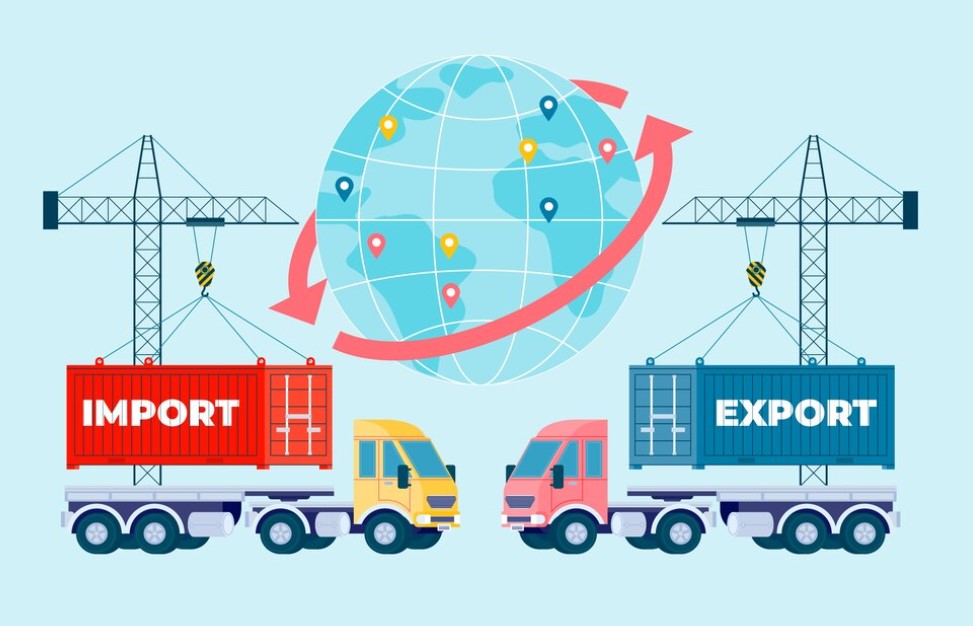IEC (Import Export Code)
- it’s super simple
- completely online
- hand-holding support
- instant response & consultation


it's pocket friendly

it's hassle free

it's instant

it's completely online
IEC (Import Export Code) @ ₹
- Salary Income
- Rent Income From One Property
- Interest Income etc.
This pricing plan includes free consultation
Fill inquiry form below to pay later
IEC (Import Export Code) @ ₹
- Salary Income
- Rent Income From Properties
- Capital Gains or Losses
This pricing plan includes free consultation
Fill inquiry form below to pay later
IEC (Import Export Code) @ ₹
- All Income Covered in ITR-2
- Income From Business or Profession
- Interest Income etc.
- Income or Loss From Intraday Share Trading
- Income or Loss From Derivatives (F&O)
- Director/Patner in a Company/LLP
This pricing plan includes free consultation
Fill inquiry form below to pay later
IEC (Import Export Code) @ ₹
- Salary Income
- Rent Income From Propeties
- Professional Receipts up to Rs. 50 Lacs
- Businesses Covered under Presumptive Taxation
This pricing plan includes free consultation
Fill inquiry form below to pay later
Know More
IEC Import Export Code
An Overview
The Import Export Code (IEC) is a unique 10-digit identification number issued by the Directorate General of Foreign Trade (DGFT) in India. It’s a mandatory requirement for any individual or business involved in importing or exporting goods and services to or from India.
The IEC facilitates international trade by acting as a key document that enables businesses to engage in cross-border trade activities. It’s essentially a registration with the government that allows an entity or individual to carry out import and export transactions.
Key points regarding the IEC:
Mandatory Requirement: Any person or entity engaged in import or export activities in India must obtain an IEC from the DGFT.
Validity and No Renewal: Once issued, the IEC is valid for a lifetime and doesn’t require renewal.
Application Process: The application for an IEC is done online through the DGFT portal, and specific documents such as PAN card, bank certificate, identity proof, and address proof of the applicant are required.
Simplified Process: Obtaining an IEC involves a relatively straightforward process and does not involve extensive documentation or complex procedures.
Use in Customs Clearance: The IEC is necessary for customs clearance when goods are being imported into or exported out of India. It serves as an identification number in various trade-related documents.
Exemptions: In some cases, such as for personal use or specific categories of goods, an exemption from IEC requirement might apply. However, in most instances of trade, having an IEC is mandatory.
Role in International Trade: The IEC is crucial in establishing credibility and authenticity for businesses engaged in international trade. It allows them to participate in global markets and comply with various legal and regulatory requirements.
In summary, the Import Export Code is a fundamental requirement for individuals and businesses involved in import and export activities in India. It serves as a unique identification number facilitating and regulating trade transactions, ensuring compliance with the country’s import-export policies and regulations.
Is It Mandatory?
Yes, obtaining an Import Export Code (IEC) is mandatory for any individual or business entity in India engaged in importing or exporting goods and services to or from the country. The IEC is a mandatory requirement as per the Foreign Trade Policy of India and is issued by the Directorate General of Foreign Trade (DGFT).
This unique 10-digit code is necessary for customs clearance and documentation during import or export transactions. It serves as a unique identification number for businesses and individuals involved in cross-border trade activities. Without a valid IEC, entities are unable to engage in international trade transactions in India.
Information / Documents Required
General Documents / Informations Required from all assessees:
PAN Card: A copy of the Permanent Account Number (PAN) card of the individual or the business entity applying for the IEC.
Identity Proof: Any government-issued identity proof such as Aadhaar card, passport, voter ID, or driving license of the proprietor/partner/director of the business.
Address Proof: Documents verifying the address of the applicant, which can include Aadhaar card, passport, voter ID, driving license, or utility bills (electricity, water, or telephone bills) not more than 2 months old.
Bank Certificate/Canceled Cheque: A canceled cheque or bank certificate bearing the entity’s or individual’s name, bank account number, and IFSC code.
Digital Photograph: Passport-size photograph of the applicant.
Authorization Letter: In the case of partnership firms or companies, an authorization letter on the letterhead granting permission to the authorized signatory to apply for IEC.
Business Proof: In case of an existing business, documents such as sales invoice, partnership deed, company incorporation certificate, or GST Certificate may be required.
Additional Documents: Depending on the nature of the business or specific requirements, additional documents might be requested by the Directorate General of Foreign Trade (DGFT) during the application process.
Due Date
Import Export Code (IEC) does not have a due date or expiry. Once obtained, an IEC remains valid for the lifetime of the entity or individual and does not require renewal. It’s a one-time registration that continues to be valid unless surrendered or canceled by the Directorate General of Foreign Trade (DGFT) for any specific reason.
However, if there are any changes in the details provided during the application process (such as changes in address, ownership, or other particulars), it’s essential to update this information with the DGFT. Keeping the registered details accurate and updated is crucial for compliance purposes.
While the IEC itself doesn’t have an expiration or renewal requirement, businesses should regularly review and update their information with relevant authorities to ensure smooth operations and compliance with regulations.
Benefits
IEC is a 10-digit identification number issued by the Directorate General of Foreign Trade (DGFT) required for individuals or businesses engaged in importing or exporting goods and services to or from India.
Any individual or business entity involved in international trade activities, whether importing or exporting goods or services from India, requires an IEC.
The application for an IEC can be done online through the DGFT website by submitting required documents such as PAN card, identity proof, address proof, bank details, and other necessary documentation.
IEC is a one-time registration that holds lifelong validity and does not require renewal.
IEC serves as a mandatory identification number for customs clearance during import and export transactions, facilitating compliance with trade regulations and documentation.
While there might be exemptions for specific categories or cases, for most import and export activities, an IEC is mandatory.
Yes, any changes in the registered details, such as address, ownership, or particulars, need to be updated with the DGFT.
Without a valid IEC, individuals or entities cannot engage in international trade activities as it’s a mandatory requirement for customs clearance and compliance with trade regulations in India
Inquiry
Note – In case you are not able to fill this form contact @ 91-9871023251

